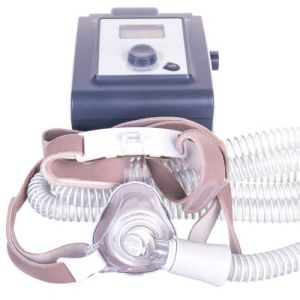 For more than 30 years, the CPAP machine has been the Gold Standard for treating obstructive sleep apnea (OSA). However, the reimbursement rate for durable medical equipment (DME), such as CPAP, has declined throughout the years making it difficult to find local suppliers.
For more than 30 years, the CPAP machine has been the Gold Standard for treating obstructive sleep apnea (OSA). However, the reimbursement rate for durable medical equipment (DME), such as CPAP, has declined throughout the years making it difficult to find local suppliers.
The Centers for Medicare and Medicaid Services (CMS) has altered their billing practices to the extent that many care providers have consolidated. Patients and medical professionals who treat OSA are forced to use Internet suppliers as their only option. These factors combined have greatly reduced the compliance of CPAP use as well as the reimbursement rates. As of January 1, 2016, CMS reduced reimbursement rates for CPAP by 25%, which will directly affect the quality of care for OSA patients.
On the flip side, oral appliance therapy (OAT) was not a focus for CMS and, therefore, has been an underfunded therapy for patients. For Medicare patients, access to OAT may be difficult. Due to the lack of reimbursement, dentists have struggled to provide OAT for patients. However, for some states in the U.S., CMS has increased its reimbursement rate for OAT as of January 2016. The CMS slowly understands that OAT has higher compliance rate for patients, and it provides a better rate of return on sleep therapy dollars.
This increase in reimbursement rates is slowly driving sleep therapy in a new direction. We no longer have to rely on a CPAP machine to treat OSA and its related symptoms. CPAP machines are noisy, cumbersome, and uncomfortable for many patients. Thankfully, advancements in dentistry have brought us OAT, which are custom-made oral appliances that fit comfortably in the patient’s mouth, holding the lower jaw in an optimal position that facilitates airflow. An oral appliance device is worn while the patient sleeps, and is part of their continued therapy for treating OSA.
If you suffer from OSA or any other type of sleep breathing disorder, consider a consultation with your dentist. Sleep apnea can lead to many adverse health conditions such as an increased risk of heart disease, stroke, diabetes, among many other diseases. Take a small step now to protect your health, and breathe better while you sleep.

